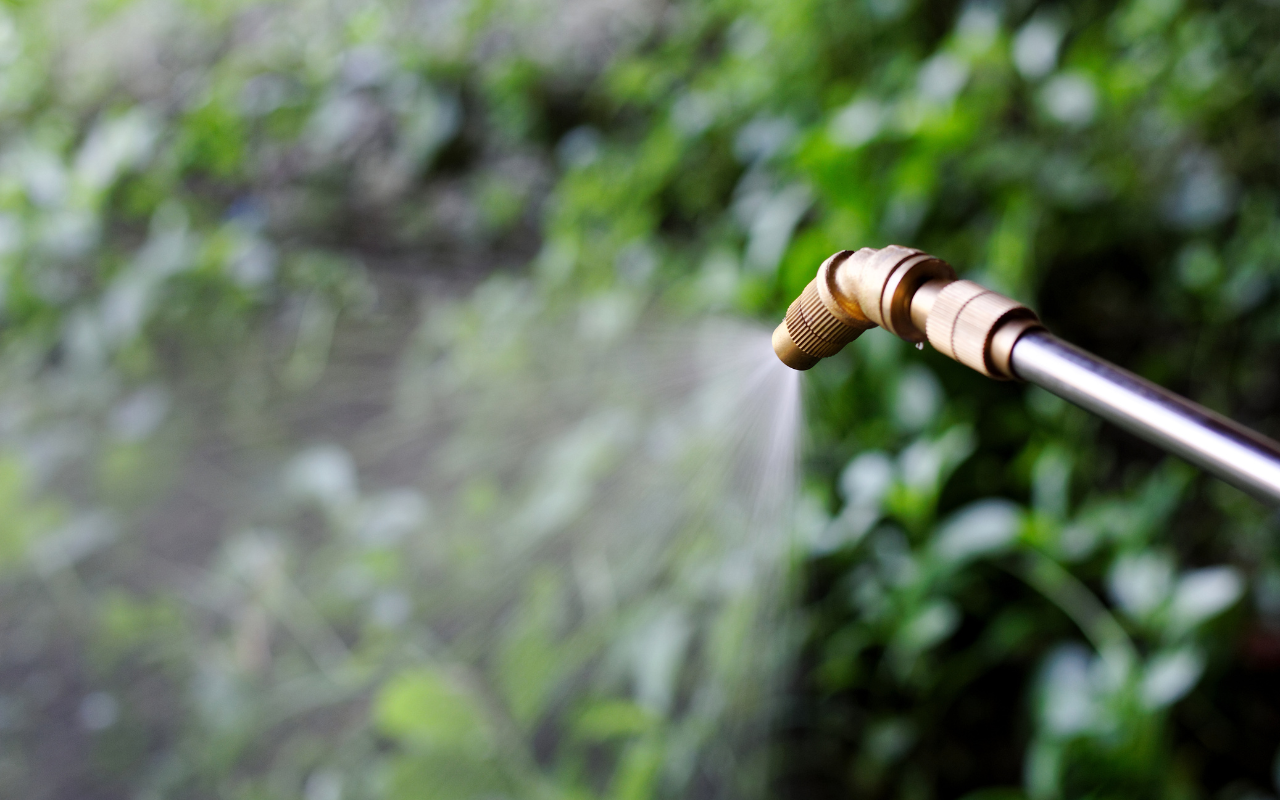Parkinson’s disease neurologists and advocates are urging the Australian Pesticides and Veterinary Medicine Authority (APVMA) to ban the common herbicide paraquat, citing compelling evidence linking its use to the development of Parkinson’s disease.
Paraquat is a common, non-selective herbicide that is registered for weed control in a range of agricultural situations. It is the active ingredient in 141 registered products and is a Schedule 7 poison, so only licensed people can buy it.
Despite it being banned in over 70 countries, it is still very popular in Australia and the United States, with over 10 million kilograms sold in Australia in 2022–23.
Paraquat is manufactured by a number of companies, including global chemical company Syngenta, which sells it under brand names including Gramoxone and Sprayseed.
The APVMA has been reviewing the weedkiller for 27 years and introduced tighter restrictions on its use in August 2024. Despite previously stating that evidence linking paraquat to Parkinson’s wasn’t robust, the APVMA is now reviewing scientific data and public submissions.
The APVMA is due to deliver its findings in May 2025.

The paraquat controversy
An ABC Landline special report in late August 2024 highlighted the impact that Parkinson’s disease has had on rural Australia.
The story highlighted a review by neurologist Caroline Tanner that showed that farmers who used paraquat were 2.5 times more likely to develop Parkinson’s disease than those who hadn’t.
However, the APVMA has issued a statement saying that the ABC has made several false claims.
Regarding farmers being 2.5 times more likely to develop Parkinson’s if they’d used paraquat, the APVMA said: “This statement is misleading as it was presented in isolation from all the available evidence. The Tanner study is an important piece of epidemiological work. However, it is only one of the studies that the APVMA considered before reaching a regulatory conclusion regarding whether or not there is a potential association between the use of paraquat, in accordance with the label instructions, and an increase in the possibility of developing Parkinson’s disease.
“A more recent study, Shrestha et al (2020), found that there was no association between paraquat use and Parkinson’s disease in the absence of head injury, although the study did identify an association where there was the presence of head injury,” the APVMA statement continued.
Similarly, in a media statement, Syngenta highlighted that scientific evidence doesn’t support a causal link between paraquat and Parkinson’s.
They referred to several studies, including a review in NeuroToxicology that states: “A consensus exists in the scientific community that the available evidence does not warrant a claim that paraquat causes Parkinson’s disease.”
The Australian medical perspective
However, many Australian neurologists and Parkinson’s disease advocates disagree. President of the Movement Disorder Society of Australia and New Zealand (MDSANZ) Professor Carolyn Sue hopes that a review will lead to a ban.
“It’s been known in the Parkinson’s disease field for a long time about the risks, and I’m guessing that’s the reason why this has now come under review, that and the other toxic effects that it has. [I’m] So grateful the review is now underway,” she told InSight+.
Parkinson’s Australia has also made a submission to the review, calling for a ban to ensure public safety. CEO of Parkinson’s NSW Mary Kay Walker admits nothing can change overnight.
“The farmers rely on these herbicides and pesticides to produce food, and you can’t just ban paraquat from the parapet. They’ve got to have something to replace it,” she said.
However, she’s concerned about the number of people, particularly farmers, who are being diagnosed.
“It’s the fastest growing neurological disorder in the world at the moment, and neurological disorders are now the leading cause of disability globally. Parkinson’s has been flying under the radar for far too long. The incidence of Parkinson’s per 100 000 population far outstrips most cancers. So we’re talking about a pandemic,” she said.
Diagnosing and treating Parkinson’s disease
Parkinson’s disease occurs when the brain doesn’t make enough dopamine. Professor Sue explained the impact that it’s believed paraquat can have.
“Paraquat increases oxygen free radical production. That’s the main mechanism that is thought to cause the changes. Then a whole bunch of factors as different individuals have greater vulnerabilities. Part of it is their genetic disposition. Other parts include the behaviours of how individuals handle the chemical and also, the higher the dose, the higher the risk,” she said.
Ms Walker urged rural health care providers to be aware of a potential link between paraquat and Parkinson’s disease.
“The trip to diagnosis can be long and difficult because it’s not well taught,” she explained.
There are many symptoms related to the disease, and not all of them are well known.
“Most people are aware (from Michael J Fox and public figures who develop Parkinson’s disease) of the movement disorder, which is visible tremors. And troubles with moving, difficulties with walking and falling and those sorts of things.
“A lot of people aren’t aware of the other non-motor symptoms of Parkinson’s disease like bowel dysmotility leading to constipation, mood disorders, anxiety, depression, sleep disturbance, abnormal movements and loss of smell,” Professor Sue explained.
Although Parkinson’s can’t be cured, there are treatments and therapies to help slow the progression, including deep brain stimulation and levodopa, a drug to replace the loss of dopamine.
“Exercise is critically important for people with Parkinson’s. You’ve got to keep moving,” Ms Walker highlighted.
“Speech pathology is vitally important and counselling. All of them get depression and anxiety, the anxiety is sometimes the thing that they get the most prevalent. The other thing is social connection, keep them socially connected, keeping them part of the community, letting them have a voice,” she said.
Even if paraquat is ultimately banned, the broader conversation about pesticide exposure and public health will continue, with Parkinson’s disease remaining a pressing issue in Australia and globally.
Subscribe to the free InSight+ weekly newsletter here. It is available to all readers, not just registered medical practitioners.

 more_vert
more_vert
The supposed strict Regulator / Watchdog who is supposed to vehemently protect all people and life from these dangerous chemicals are allegedly mostly funded by Industry and that means they have no credibility whatsoever.
I support the banning of
paraquat IMMEDIATLEY
Sorry but the comment that there are treatments to slow the progression of Parkinson’s disease is misleading.
Only treatment exists so far, but nothing has yet been proven to modify the disease progression.
We await the now completed Exenatide trial data release on its potential to do just that.
Paraquat is banned is Europe and UK since 2016 and 2007 respectively. Yes, UK are exporting here; to countries where Paraquat has already affected neurological capacity.
We are too late?